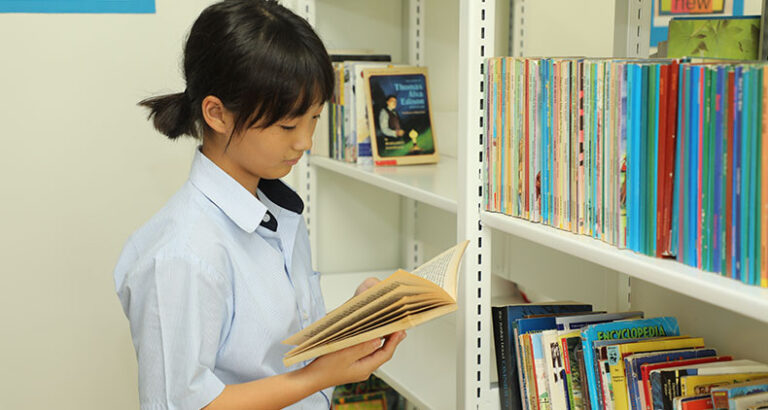A bilingual curriculum refers to academic practices that promote learning multiple languages to acquire competence and fluency. It includes a variety of approaches like immersion, dual language, and transitory programmes. Bilingual education fosters cognitive growth, linguistic abilities, and cultural competency by exposing kids to many languages, equipping them to succeed academically and beyond.
Bilingual education at international high schools in Tokyo mirrors the city’s global backdrop, serving a varied population of domestic and international families. These programmes primarily provide comprehensive learning opportunities in Japanese and English, with some educational institutions including other languages. Bilingual preschools in Tokyo seek to promote kids’ language fluency and preparedness for global citizenship at a young age.
Bilingual education in Tokyo offers multiple advantages to children. The academic programmes support their cognitive flexibility, linguistic skills and cross-cultural understanding by exposing learners to many dialects and cultures. This article shares the top benefits your kids can enjoy by enrolling in bilingual schools in Tokyo:
Unveiling the Essence of Bilingual Education
Understanding bilingual education influences cognitive growth, social cohesion, and cultural appreciation. These programmes prepare students to manage a diverse world by developing their multi-language proficiency, promoting empathy, academic achievement, and a profound awareness of global connectivity. Here is the fundamental structure of bilingual education at schools in Tokyo:
- Framework of Bilingual Learning:
The foundation for multilingual learning includes immersion in language experiences, cultural adaptation, and mental agility. It offers an organized approach to developing multilingual competency, cross-cultural understanding, and mental agility. This framework is the foundation for comprehensive learning, helping students succeed in varied global circumstances.
- Types of Bilingual Education Models:
Bilingual education approaches include immersion, dual language, and transitory programmes. Immersion programmes provide education primarily in a non-native dialect, emphasizing learning with total immersion. Dual language programmes promote balanced bilingualism by teaching academic material in both languages. Transitional programmes start with the native language and progressively move to the non-native tongue.
- Practical Implementation Strategies:
Practical bilingual education implementation tactics involve developing culturally relevant curricula, providing language-rich settings, and aiding teachers with professional development opportunities. Interactive activities, language exchanges, and family involvement in the learning process are essential to maximize language adaptation and cultural immersion possibilities for learners.
Cognitive Advantages of Bilingual Education
Cognitive rewards of bilingual schooling include greater mental agility, capacity for problem-solving, and increased metalinguistic understanding. Bilingual students show superior cognitive flexibility, using neuroplasticity to learn numerous languages. Listed below are the top intellectual benefits your children can avail after admission into a bilingual school:
- Enhanced Cognitive Flexibility:
Improved cognitive flexibility enables learners to switch across languages and adapt to different scenarios. This agility goes beyond linguistic disciplines, encouraging innovative thinking, creativity and determination in the face of hardship. Dual-speaking students develop a diverse mindset from exposure to multiple language structures, which broadens their cognitive palette and increases their potential for creativity and success.
- Improved Executive Functioning:
Students with improved managerial abilities are better suited to develop strategies, make decisions, and resolve challenges. Bilingual learning enhances cognitive processes involved in control mechanisms and adaptive thinking to improve self-control and task management. This improved executive functioning enhances academic performance and increases cognitive resilience and adaptation in different life scenarios.
- Greater Problem-Solving Skills:
Bilingual education improves troubleshooting abilities by boosting cognitive flexibility and language interpretation. Bilingual students at international high schools are skilled at managing multiple language and cultural contexts, leading to increased analytical thinking and innovative thinking approaches. This cognitive advantage allows learners to consider problems from multiple viewpoints to find practical and creative solutions.
- Increased Memory Retention:
Bilingual education translates to improved memory retention, linked to the mental demands of processing several languages. Bilingual students frequently show exceptional memory skills like enhanced working memory and long-term recall capacity. The increased retention spans beyond linguistic knowledge to include various cognitive activities and academic areas, indicating bilingualism’s intellectual advantages.
Social Benefits of Bilingual Learning
The social benefits of bilingual education include improved interpersonal ability, multicultural awareness, and global citizenship. Bilingual students demonstrate compassion and respect for diversity to facilitate meaningful connections. Learners form relationships and networks with people from various cultures through language and cross-cultural opportunities.
- Enhanced Communication Skills:
Enhanced communication abilities are an attribute of multilingual learning resulting from exposure to numerous languages. Bilingual learners are skilled in navigating different linguistic environments, resulting in excellent verbal and non-verbal communication. This improved linguistic capacity helps with interpersonal interactions and fosters cross-cultural empathy and understanding to enrich social ties and friendships.
- Diverse Friendships and Networks:
Bilingual education develops unique partnerships and networks by crossing linguistic and cultural barriers. Students become skilled at interacting with others from diverse backgrounds, promoting meaningful encounters and exchanges. Language competence allows them to develop connections with others who speak various languages, resulting in inclusive societies that celebrate diversity while fostering respect and appreciation.
- Promoting Community Integration:
Boosting community integration is a vital impact of multilingual education. Bilingual learners act as cultural representatives, bridging linguistic barriers and promoting social unity. They foster relationships between distinct communities by participating in language exchange and cultural events to contribute to a peaceful and inclusive society where people from different backgrounds feel respected.
- Empowering Global Citizenship:
Bilingual learning promotes international citizenship by shaping culturally and linguistically competent learners to address the intricacies of our connected world. Students gain an extensive knowledge of global issues, empathy for varied perspectives, and a sense of responsibility. This global attitude enables them to contribute to a more equitable and sustainable international community.
Academic Success With Bilingual Education
Bilingual education enhances academic performance by improving linguistic competency, mental agility, and cultural awareness. Students outperform their monolingual counterparts on standardized tests, indicating higher readiness for further education and professional opportunities. Here are the top academic benefits students of bilingual learning can enjoy:
- Competency in Multiple Languages:
Proficiency in numerous languages is a crucial feature of bilingual education by allowing students to converse effectively across linguistic barriers. They become fluent in two or more languages, expanding their academic, career, and personal horizons. This linguistic diversity enables learners to navigate multiple cultural scenarios, increasing adaptation and offering access to worldwide experiences and possibilities.
- Cognitive Transfer to Core Subjects:
Cognitive transition to fundamental subjects is an essential advantage of bilingual learning in Tokyo preschool, as skills learned in one language transfer smoothly to learning excellence in other domains. Bilingual students display enhanced reasoning ability and metalinguistic awareness to improve their performance in STEM and languages, supporting overall academic achievement across subjects.
- Enhanced Literacy Capabilities:
Bilingual education helps students improve their reading, writing, and interpreting skills in multiple languages. They have enhanced linguistic abilities, such as mastering vocabulary, grammatical competence, and textual analysis, leading to better proficiency in fluency across their native and non-native dialects. It allows access to a large selection of academic materials and cultural literature.
- Global Learning Opportunities:
Competency in varied languages opens the door to global education possibilities and cultural experiences. Bilingual education offers students the linguistic and cultural awareness needed to work across boundaries and engage in study abroad programmes, internships, and exchange initiatives. These encounters widen horizons, foster empathy, and prepare people for accomplishment in a connected world.
Cultural Enrichment Through Bilingual Learning
Bilingual learning enriches students’ cultural experiences by immersing them in varied languages and customs. It exposes students to different dialects, traditions and viewpoints, instilling a deep respect for cultural diversity. Linguistic immersion, exchanges of cultures, and multicultural experiences help children foster compassion, tolerance, and respect by offering them these cultural advantages:
- Exposure to Diverse Perspectives:
Students engage in numerous languages and cultures, offering exposure to varied viewpoints. Bilingual education introduces students to new methods of thinking, speaking, and comprehending the world, extending their horizons and challenging their presumptions. They acquire a greater appreciation for the complexity of human experiences by connecting with classmates from new backgrounds.
- Fostering Intercultural Competence:
Students gain the understanding and new perspectives needed to navigate cultural boundaries with bilingual learning. Exposure to these helps learners to understand and value diverse customs and traditions. Bilingual students develop empathy, cultural sensitivity and their ability to thrive in multicultural environments and support a globalized society.
- Embracing Multicultural Diversity:
Celebrating global diversity is fundamental to bilingual education as it embraces the spectrum of human experiences while promoting inclusivity and equality. Students learn to respect varied languages, practices and viewpoints across communities. They acquire a profound appreciation for all cultures and a sense of belonging in a diverse and united global society.
- Preservation of Cultural Heritage:
Preserving cultural legacy is critical in bilingual education as it honours and preserves linguistic and social customs across generations. Language learning, literature, storytelling, and cultural events enable bilingual students to conserve and celebrate their heritage. By recognising and maintaining their cultural history, they develop a strong feeling of pride and connection to their origins.
Conclusion
Bilingual learning in Tokyo preschools offers numerous benefits, including increased cognitive development, social integration and academic performance. These programmes provide children with vital skills for traversing an increasingly globalized environment by encouraging linguistic variety at a young age. Embracing language proficiency enhances educational experiences and promotes inclusive societies and cultural understanding.
Tokyo preschool and educational institutes that support bilingual learning encourage social unity, empathy, and intercultural understanding among students. Academically, bilingualism is associated with greater success levels and improved literacy abilities. It instils values such as diversity, cultural preservation, and global citizenship. Parents looking to prepare their kids for a bright future should opt for bilingual education programs.

























+ There are no comments
Add yours